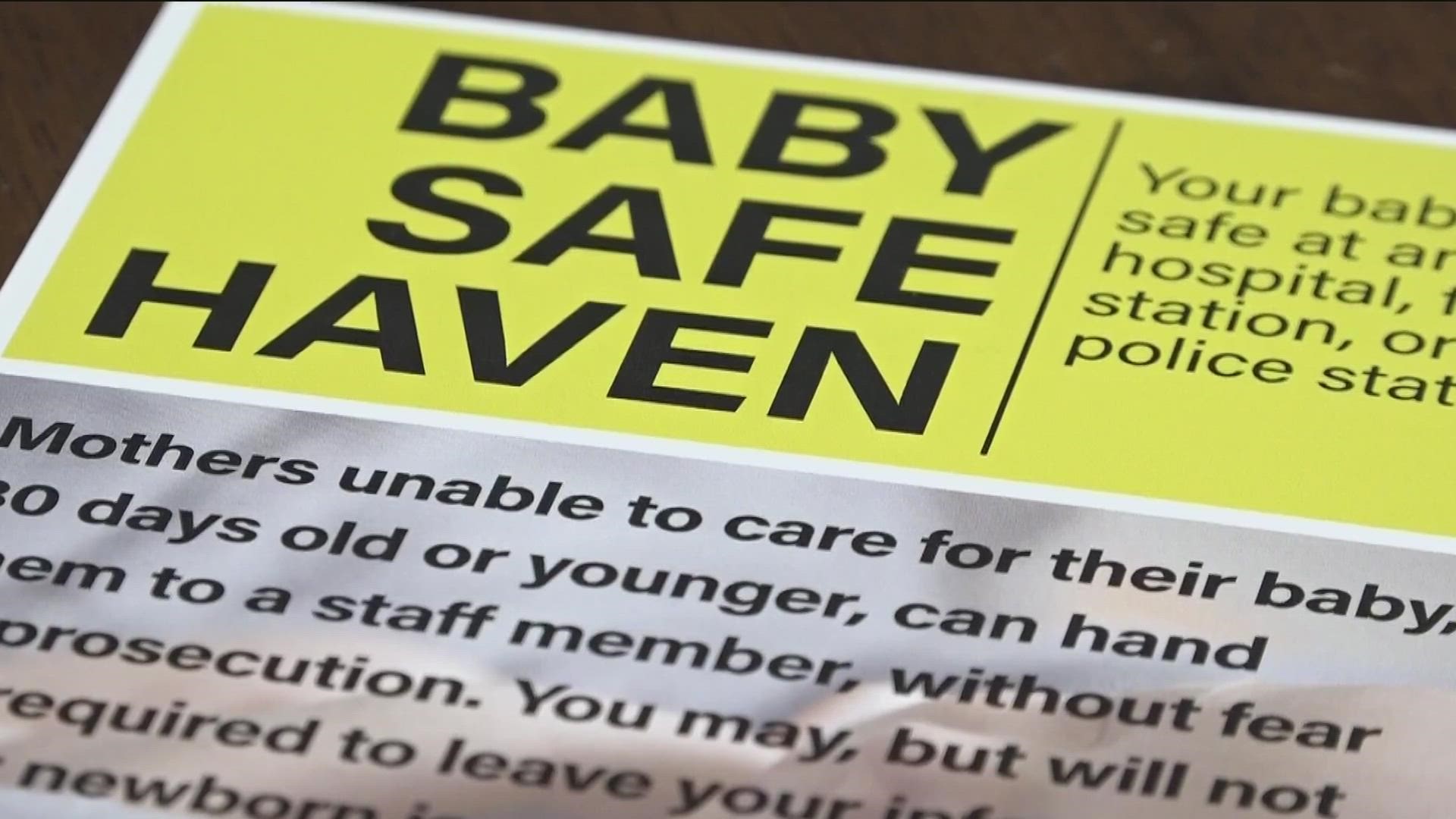ATLANTA — A new Georgia Senate bill is looking to include churches in the state's "safe haven" laws as a location where mothers of newborns can leave their children.
The current law has been on the books for more than 20 years. It aims to give mothers the option of safely delivering their baby to a medical facility, police station or fire station if they don't feel they can care for the child.
Until now, advocates said, it would be easy to assume churches would have been included - but that hasn't been the case.
One advocate, Founder and Executive Director of The Hope Box Sarah Koeppen said including churches would give women in rural communities another pathway toward utilizing the law.
"The reason we're having to go back and amend the law is because – we're finding in 159 counties (in Georgia), there's 122 that are rural, so we're wanting to create as many options as possible," she said.
The law would also include a child-placing agency among the approved destinations. The law was last updated in 2018 to expand the drop-off window from seven days to 30 days.
Under the amendment introduced to the Georgia Senate, S.B. 187, instructions for departments or churches that receive a child would also be more formalized.
For all such locations, they would need to "immediately transport or arrange for transport of the newborn infant to a hospital for physical examination" and immediately notify the Georgia Department of Human Services.
It also provides for the Department of Human Services to provide an infant to the custody of child-placing agencies for adoption, rather than take custody itself.
The child-placing provision of the law will "apply to an unharmed newborn infant who is no more than 30 days of age and who is not alleged to have been neglected or abused."
"If a newborn infant is transported to a hospital for physical examination and is reasonably believed to be older than 30 days or to have been neglected or abused, the hospital shall contact the department and the department shall take physical custody of the newborn infant," the bill states.

